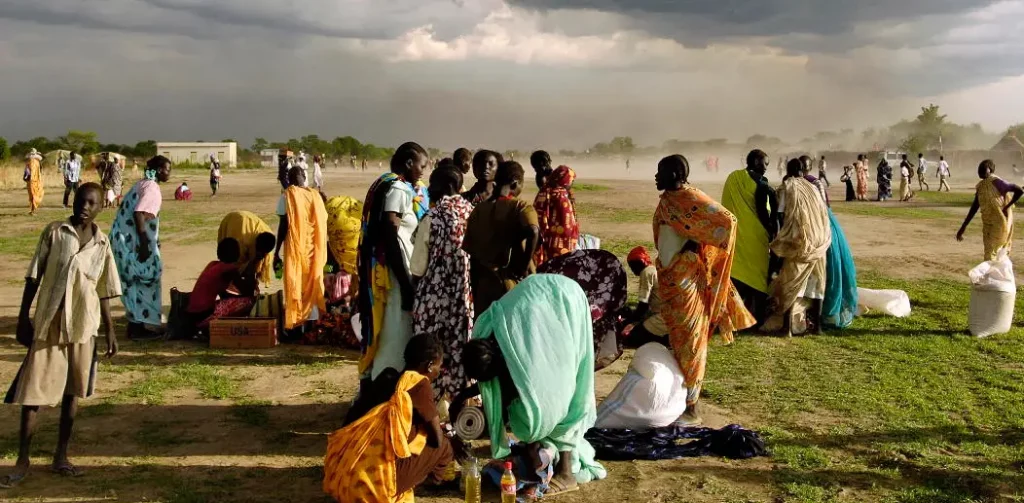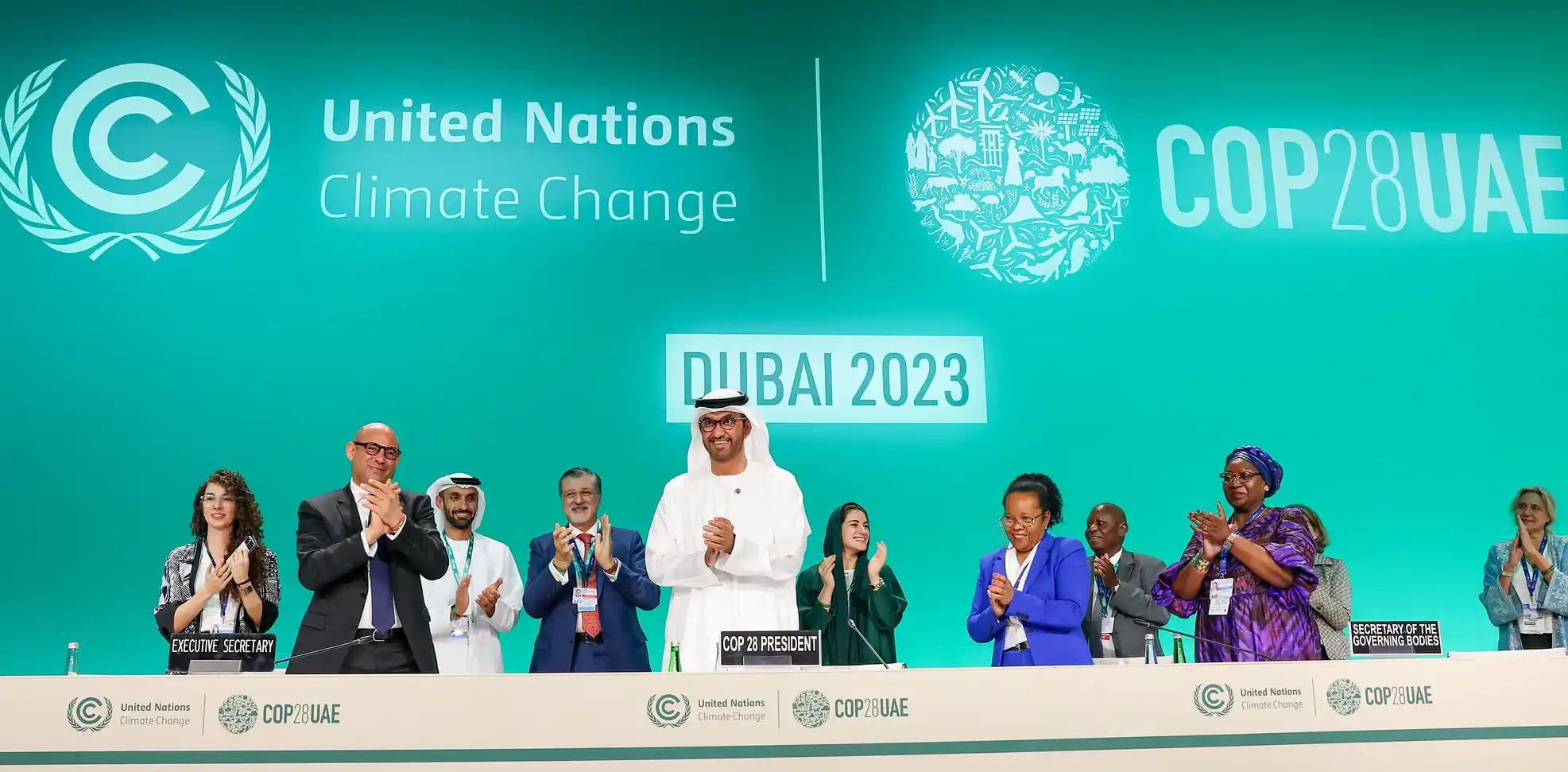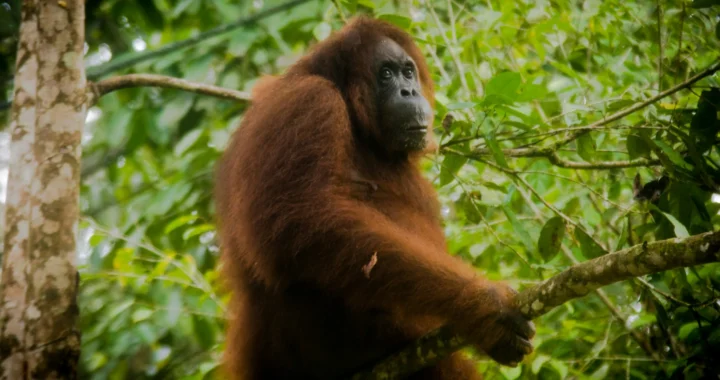How Climate Protection Is a Human Right

Photo: Tim McKulka on Flickr.
As humans, we have the right to live and to feel secure from any existential threats. Yet, the unsustainable practices of development have brought us to the point of climate crisis. The damages done are disrupting ecosystems, harming climate-vulnerable communities, and ultimately may result in the inability to fulfill the needs of future generations. Hence, ensuring climate protection and providing security from climate-induced harm is the right of every human being.
Harmful Practices Fuel Climate Crisis
Since the industrial revolution, development has been closely tied to the widespread use of fossil fuels. Nearly all industrial processes, from production to transportation, rely on various forms of fossil fuels. Today, the consequences of using and exploiting these fuels are becoming increasingly clear.
The year 2023 was the hottest year on record, and global temperature almost reached the 1.5°C limit. Global warming is primarily caused by human activities and has huge cascading effects. For instance, increased temperatures in the ocean lead to extreme events such as heat waves, dead zones, and coral bleaching. Consequently, these alterations harm marine life, causing habitat loss and changes in marine food cycles. Rising global temperature also causes rising sea levels that disproportionately impact those in vulnerable low-lying areas.
Another harmful common activity is the change of land use. Land use change for plantations and human industrial expansion alters ecosystems and everything in it. They may become unsuitable for their animals, forcing wildlife to migrate beyond their typical habitats in pursuit of foods and suitable environments.
With the ongoing harmful and unsustainable practices, the current generation is likely to exhaust all resources. So, it’s crucial to address and transform these practices urgently to prevent such an outcome. Failure to do so could jeopardize the survival of future generations, a violation against basic human rights.
Inadequate Global Actions

Addressing these pressing situations, states and other global multi-stakeholders began coming together in creating commitments and common ground. In 2015, the Paris Agreement was signed to show nations’ commitment to keeping the global temperature below 1.5 degrees celsius above pre-industrial levels. It also aims to assist countries adapt to climate change by providing logistical and expert support.
Despite numerous global cooperation and commitments along with significant development in electric mobility and renewable energy, there is not enough progress.
In 2023, a United Nations analysis found that countries’ plans to tackle climate change aren’t enough to meet the Paris Agreement goals. The report, based on long-term low-emission development strategies and submissions from 75 countries, points out a significant gap between current commitments and what’s needed. Additionally, an independent-research organization based project, the Climate Action Tracker, shows that countries with high greenhouse gas emissions, like China and the United States are still falling short in meeting their commitments.
Climate Protection Is a Human Right
The question now arises: are inaction and insufficient efforts in climate protection a violation of human rights?
In October 2021, the Human Rights Council adopted the resolution of human rights to a clean, healthy, and sustainable environment. It emphasizes the importance of human rights to a clean, healthy, and sustainable environment. It also underscores how protecting the environment is crucial for human wellbeing and rights. Therefore, governments worldwide are urged to safeguard human rights by protecting vulnerable populations from environmental harm.
The current crisis is caused by prioritizing short-term profit over sustainability and human wellbeing, hitting vulnerable groups the hardest and ultimately impacting everyone and everything. As the biggest perpetrators, businesses and governments bear the biggest responsibility to halt the climate crisis; yet, they have not acted enough.
Hence, it is crucial to reiterate the commitment and mobilization of global stakeholders to meet national and global targets of achieving net-zero emissions. At the same time, this emphasizes the importance of upholding human rights and addressing climate-induced harm on vulnerable communities. Sustaining the planet’s resources and ensuring the human right to healthy and sustainable life for current and future generations are still within our reach.
Editor: Nazalea Kusuma

Subscribe to Green Network Asia
Strengthen your personal and professional development with cross-sectoral insights on sustainability-related issues and sustainable development across the Asia Pacific and beyond.


 Looking into Biochar as a Bioremediation Agent
Looking into Biochar as a Bioremediation Agent  Australian Climate Visa for Citizens of Tuvalu: Showcasing cross-border partnership in light of the climate crisis
Australian Climate Visa for Citizens of Tuvalu: Showcasing cross-border partnership in light of the climate crisis  Nickel Mining in Raja Ampat and the Widespread Cost of Natural Resource Exploitation
Nickel Mining in Raja Ampat and the Widespread Cost of Natural Resource Exploitation  Lumbung Sosial: Challenges and Opportunities of Indonesia’s Social Barn Program
Lumbung Sosial: Challenges and Opportunities of Indonesia’s Social Barn Program  A Worrying State of Insect Decline
A Worrying State of Insect Decline  GEF Approves Funding for Biodiversity Conservation Projects in Indonesia
GEF Approves Funding for Biodiversity Conservation Projects in Indonesia